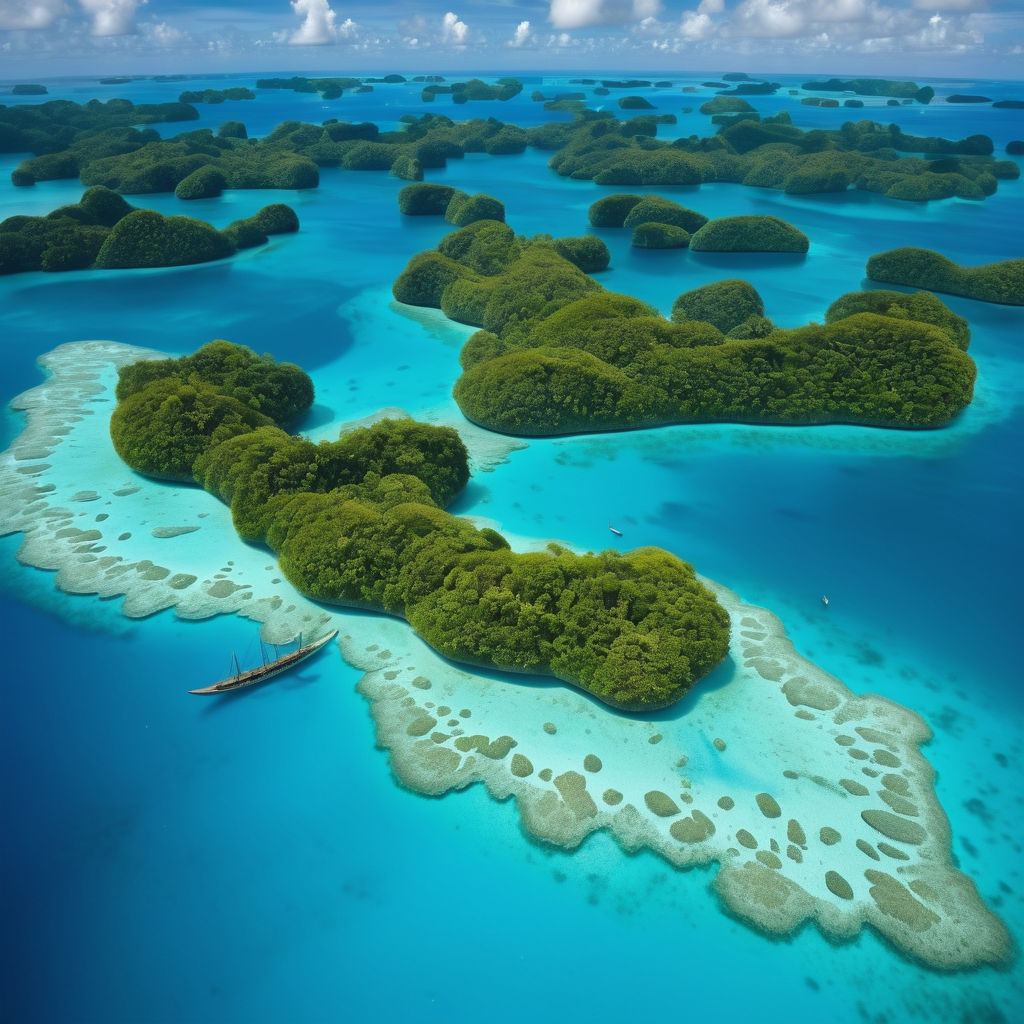Introduction to Palau: A Cultural Melting Pot in Micronesia
Exploring the Rich Cultural Heritage and Cross-cultural Engagement of Palau

Introduction to Palau
Palau, an island country located in the western Pacific Ocean, is part of the larger island group of Micronesia. It consists of approximately 340 islands, with a total land area of 459 square kilometers. The country's capital is Ngerulmud, situated on the island of Babeldaob, the largest island in the archipelago. Koror is the most populous city and serves as the commercial center. Palau boasts a rich cultural heritage, blending ancient Micronesian traditions with influences from its historical interactions with Spain, Germany, Japan, and the United States.
Cross-national and Cross-cultural Understanding
Palauans generally perceive and engage with other cultures with openness and respect, reflective of their historical interactions with various foreign powers. The country's small population and strategic location have made it a melting pot of cultural influences. Palau promotes cross-cultural understanding through various cultural exchanges, educational programs, and international partnerships. Significant cultural exchanges occur through events like the Pacific Arts Festival, which brings together artists from across the Pacific region to celebrate and share their cultures. Educational programs, such as scholarships for Palauan students to study abroad, further enhance cross-cultural understanding. The Palau Community College, in partnership with international universities, offers programs that encourage cultural exchange and global perspectives. International partnerships play a crucial role in fostering cross-cultural understanding. Palau is an active member of international organizations such as the United Nations, the Pacific Islands Forum, and the Micronesian Presidents' Summit. These affiliations promote cultural cooperation and facilitate collaborative projects, student exchanges, and cultural festivals, strengthening Palau’s cultural ties with the world.
Interactions and Social Dynamics
Interactions between Palauans and foreigners are typically characterized by warmth, friendliness, and a strong sense of hospitality. Social behaviors in Palau emphasize respect, community, and harmony. These values are often reflected in the way Palauans engage with outsiders. Social behaviors in Palau stress the importance of community and respect. Greetings are warm and often involve a handshake or a traditional Palauan gesture of respect. Hospitality is a significant aspect of Palauan culture, and guests are treated with great care and generosity, frequently invited to share meals and participate in social gatherings. Communication styles in Palau are generally direct yet polite. Palauans value honesty and clarity in communication, often engaging in straightforward and respectful discussions. Non-verbal communication, such as body language and facial expressions, plays a significant role in interactions, adding to the overall expressiveness of conversations. Language plays a crucial role in facilitating interactions. Palauan and English are the official languages, with English widely spoken and used in government and education. Multilingualism is valued and encouraged, especially in educational and professional settings, facilitating interactions with foreigners.
Views on Dating and Relationships
Dating and relationships between Palauans and foreigners are relatively common, particularly among the younger generation and in urban areas. Palauan society tends to be open-minded about relationships, with a strong emphasis on individual choice and mutual respect. There is a growing acceptance of cross-cultural relationships as opportunities for international exposure increase. In Palauan dating culture, there is often a strong emphasis on family approval and social harmony. Relationships are typically pursued with a long-term perspective, and traditional gender roles can play a significant role. Men are often expected to be providers and protectors, while women are expected to be nurturing and supportive. Cultural expectations and traditions, such as the importance of family approval and adherence to local customs, can impact relationships. Understanding and respecting these cultural norms is essential for successful cross-cultural relationships in Palau.
Marriage and Family
Marrying foreigners is widely accepted in Palau, though it comes with certain social and familial considerations. Legal considerations for such marriages involve specific regulations governed by Palauan civil law. There is no pressure for non-Christian spouses to convert to Christianity, reflecting the country’s secular and inclusive approach to marriage. Socially, Palauan families are generally open to cross-cultural marriages, although there may be initial reservations about cultural differences and social compatibility. However, acceptance typically increases as relationships develop and families get to know the foreign partner. Family plays a central role in Palauan culture, and marrying into a Palauan family often involves participating in family gatherings and traditions. Common practices in cross-cultural marriages include celebrating both Palauan and foreign traditions, creating a blended cultural environment. For example, a couple might celebrate Palauan holidays like Constitution Day alongside holidays from the foreign partner’s culture.